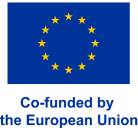Geoenergy Leap
Funders



Project information
Project duration
-
Funded by
Multiple sources
Project funder
Project coordinator
GTK (Geological Survey of Finland)
Unit and faculty
Contact information
Contact person
Other persons
- ViestintäasiantuntijaHanna Holappa
Researchers
Project description
Abandoning the use of peat causes disadvantages in municipalities, so new energy solutions are needed. Geo-energy and medium-deep geothermal wells drilled into bedrock have emerged as a low-carbon for of energy. Geoenergy originating from the earth could play a more significant role in responding to the challenges posed by the green energy transition. In order to achieve this role, it is necessary to increase experts in the field, build deeper thermal wells, increase drilling equipment, and acquire cost-effective research methods. By advancing these, as well as many other issues at the same time on a supranational level, a Geoenergy Leap is achieved - A change that will speed up the utilization of geo-energy in the provinces mitigates the effect of the loss of peat jobs, and improves local and national climate resilience.
Project actions
The project actions are energy well drilling, instrumentation, measurement, and monitoring. The built energy well will be connected to a joint laboratory of the University of Oulu and OAMK. During the measures, the teaching related to geo-energy and heating energy at the University of Oulu will be updated and new learning materials will be developed.
Project results
The key outcomes of the project:
- Medium-deep (600–800 m) geothermal wells in each province integrated into research
- Teaching infrastructure built around the wells
- A new public dimensioning tool for medium-deep geothermal energy systems
- National bedrock thermal conductivity map
- Pilot studies on integrating geo-energy into the local heat distribution system and/or as a hybrid with other energy forms
- Pilot studies on the exploitation of groundwater energy and thermal energy storages
- Increasing the knowledge of local actors in the field about the possibilities of geoenergy and its technical, economic and environmental impacts.





